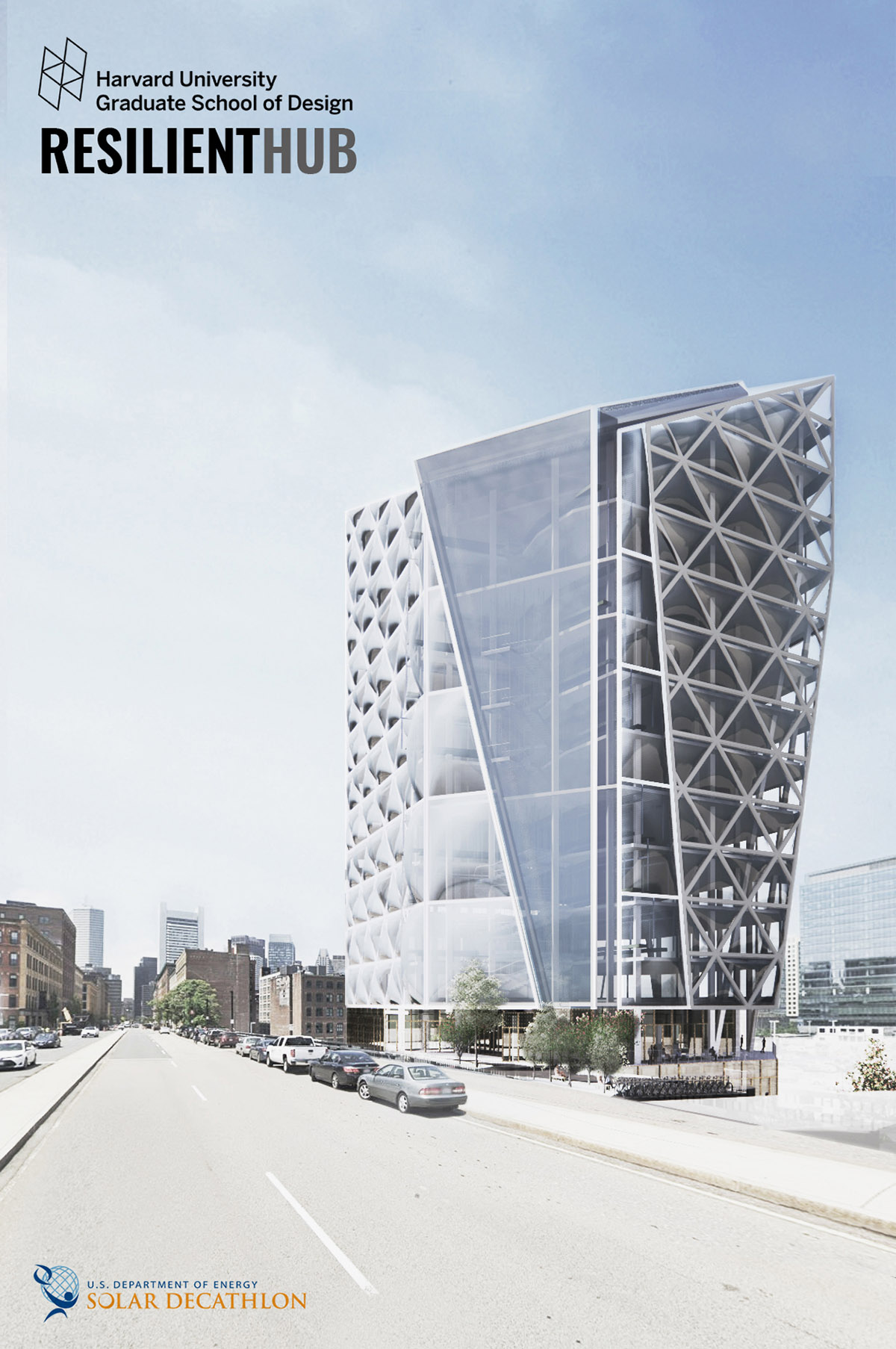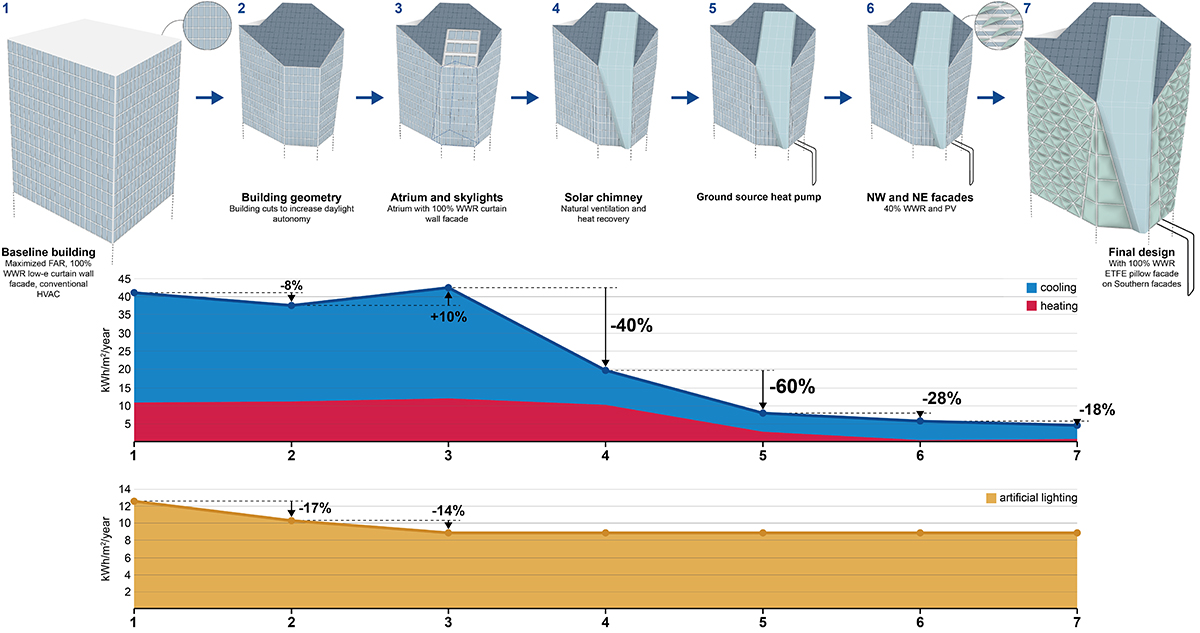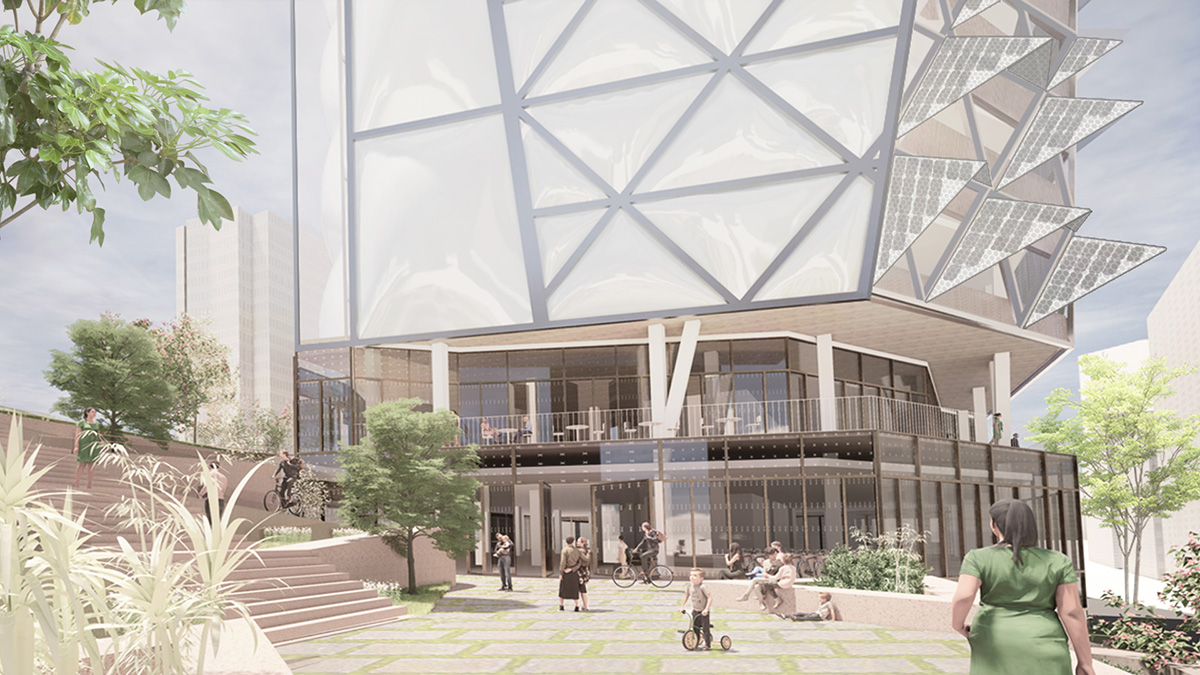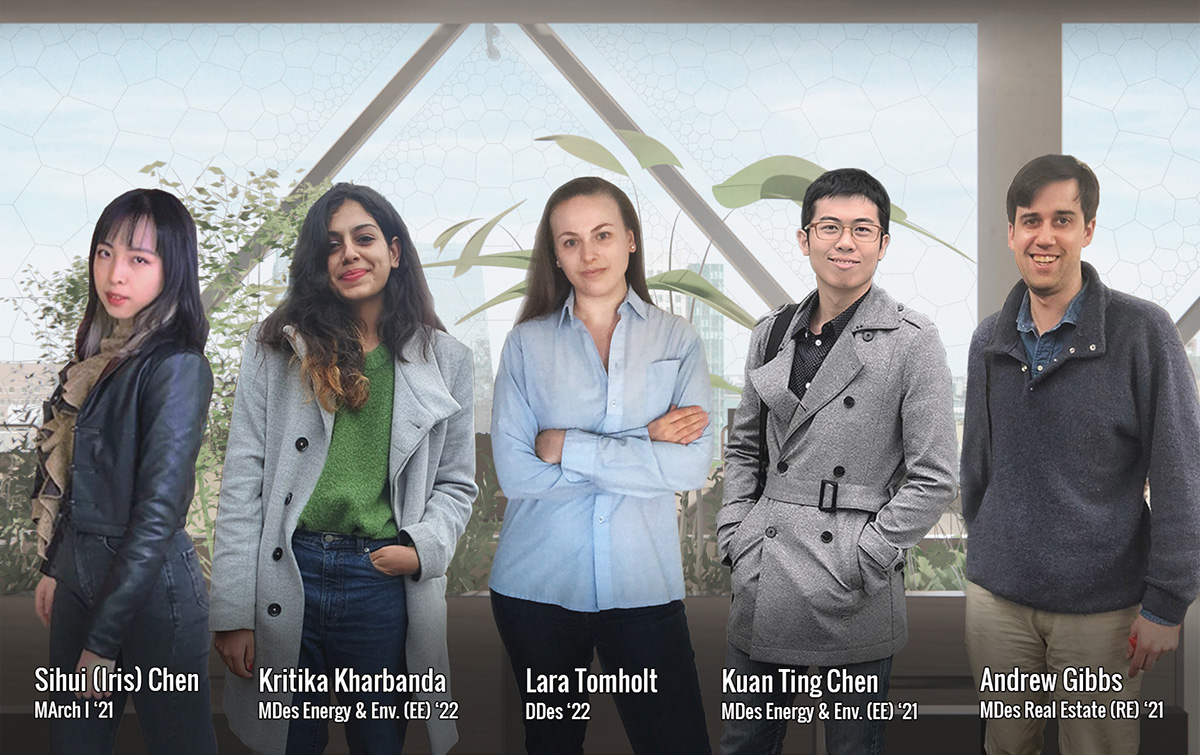ResilientHub

by Kuan-Ting Chen (MDes EE ’22), Sihui (Iris) Chen (MArch I ’21), Andrew Gibbs (MDes REBE ’21), Kritika Kharbanda (MDes EE ’23), and Lara Tomholt (DDes ’22) — Winner of third place in the 2021 U.S. Department of Energy Solar Decathlon Design Challenge (Office Building Division)
In this Anthropocene era, buildings will be subjected to rising temperatures and the increased risk of natural disasters. In addition, a growing population and strong urbanization trend will increase the density of our cities. These environmental changes will have a considerable effect on future building performance. “ResilientHub,” situated in Boston’s Seaport District, is a future-ready building that will maintain the highest energy efficiency and occupant comfort level throughout its lifetime.
The proposed building design includes 13 floors of office space, in addition to retail, restaurants, a daycare center for children of office employees, and underground parking on the lower floors. The office floors are expected to cater to a diverse range of corporate users from the life sciences, technology, and financial sectors. Adaptable ETFE pillow facades, that feature a novel tunable material developed at the Harvard Graduate School of Design, optimize solar heat gain and daylight access in response to daily and seasonal weather changes, and future global warming and urbanization. A solar chimney, placed prominently at its most optimal position for solar heat gain, provides buoyancy-driven natural ventilation and significantly lowers the building’s cooling loads with future rising temperatures. A series of indoor atria supply the office spaces with a healthy level of natural daylight and provide room for informal social interaction. Situated in a flood zone, the building employs building and landscape-integrated strategies to mitigate flood levels and delay, resist, and discharge flood water.
The innovative, high-performance design solutions employed by “ResilientHub” are directly applicable to the vast majority of the future global building stock that will be affected by the same environmental changes.



